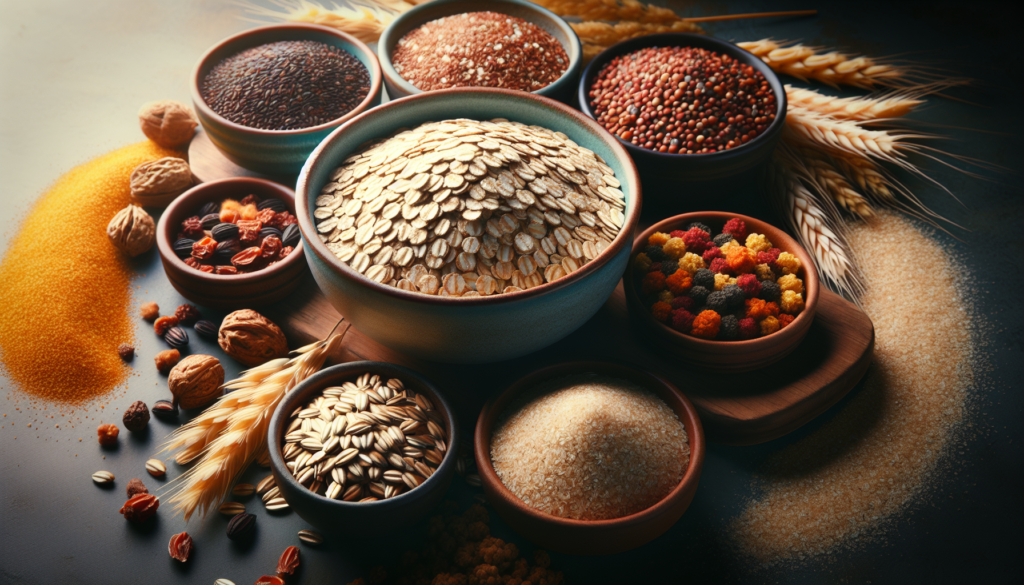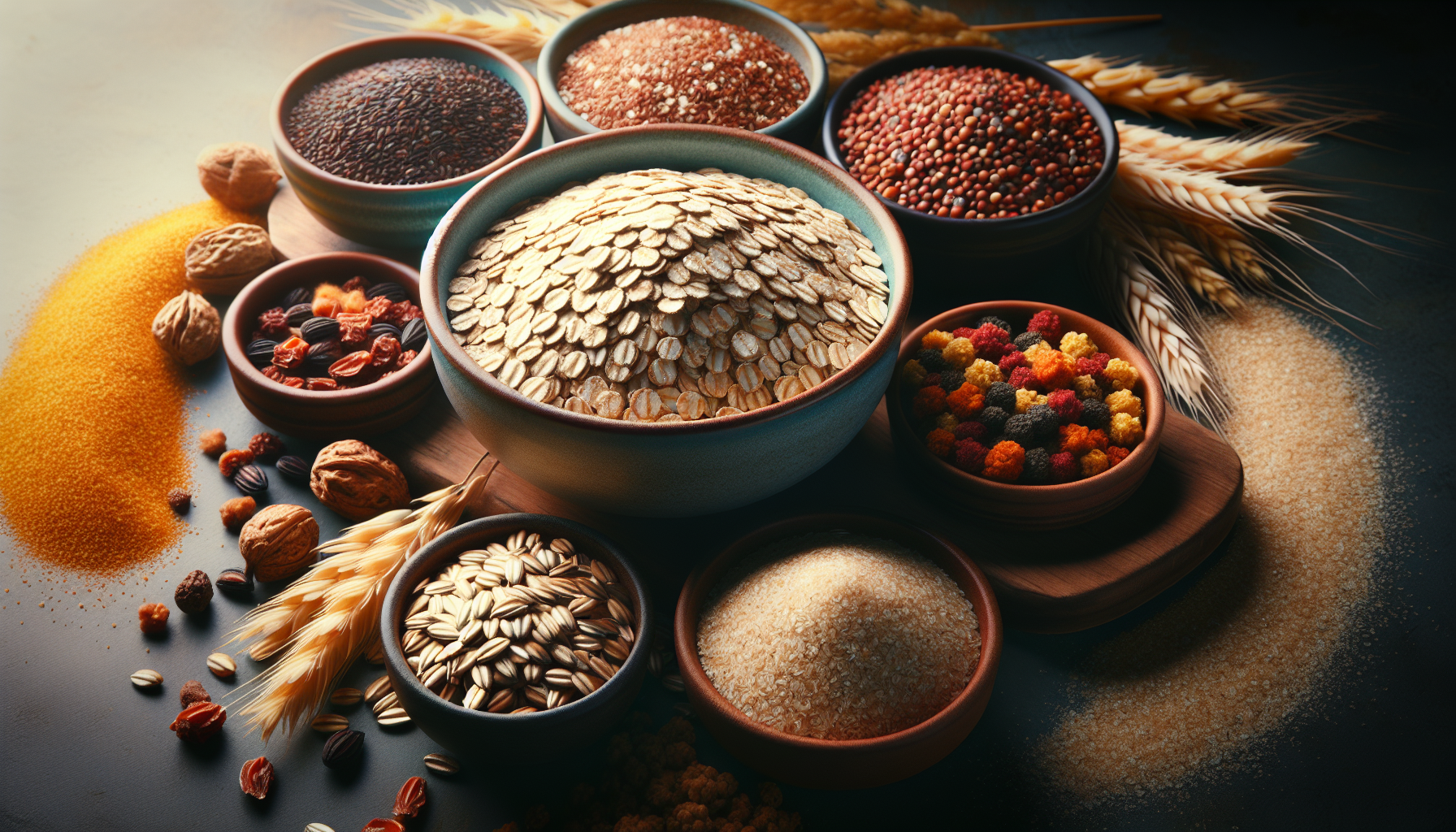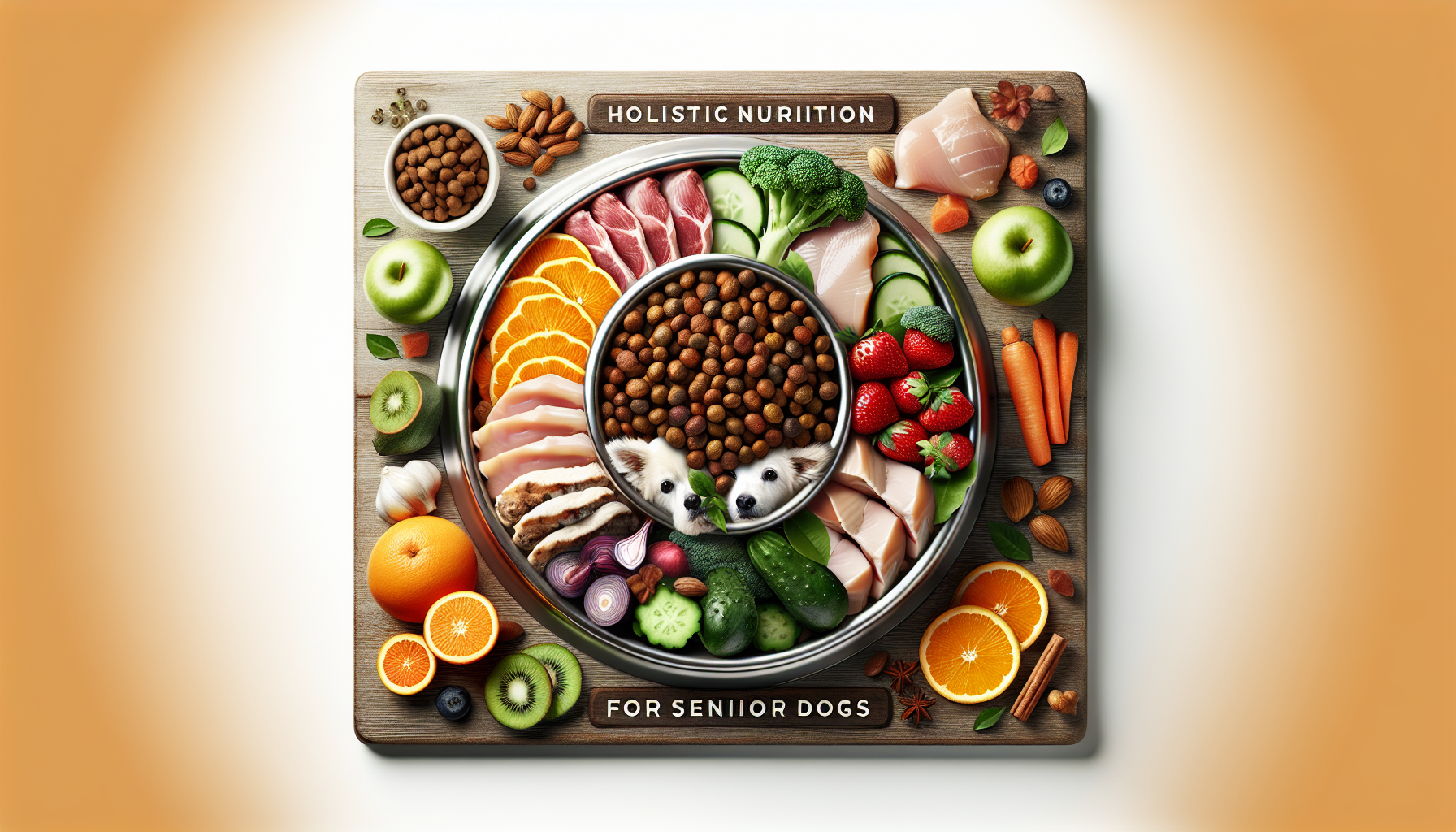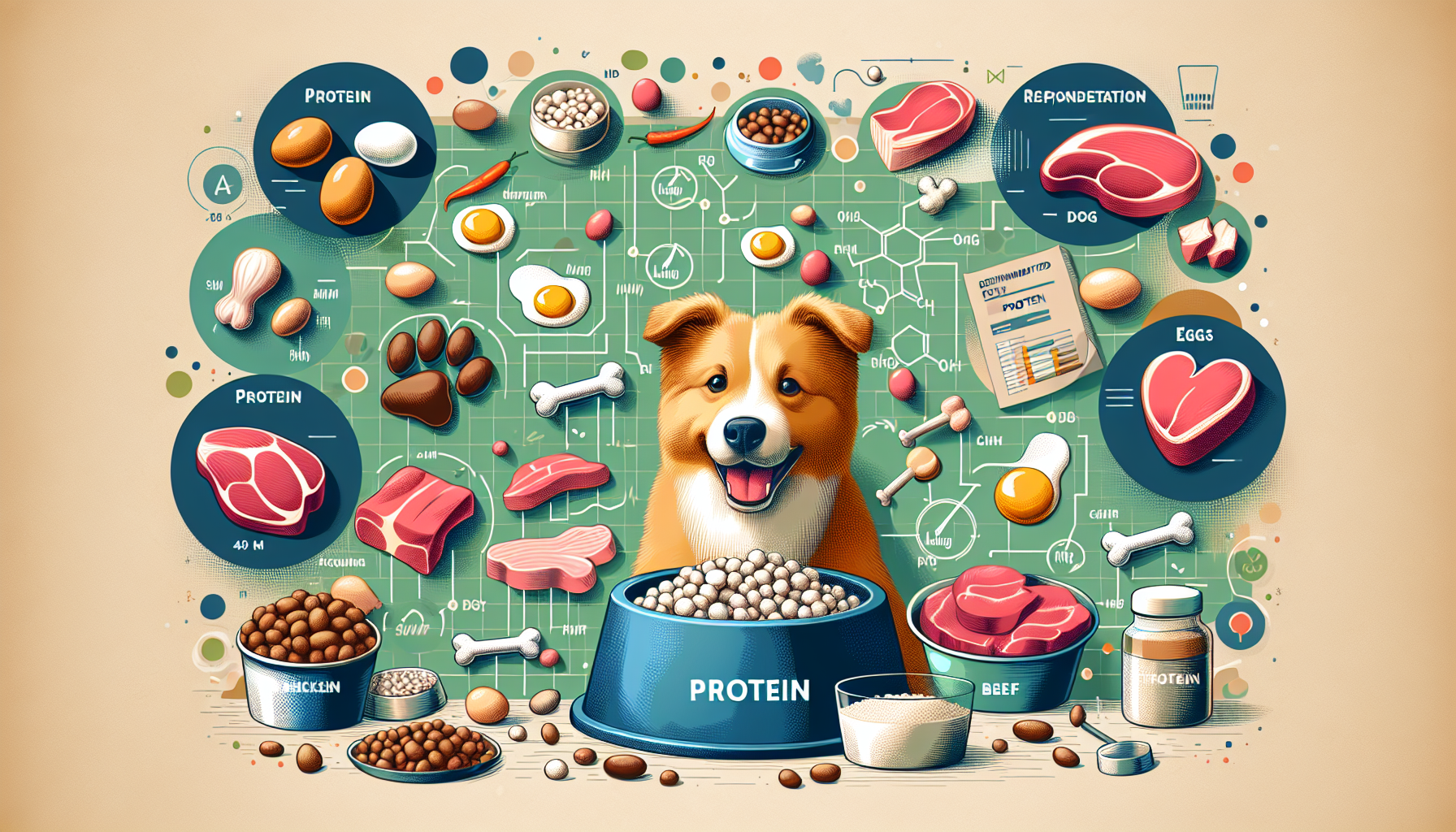Imagine you’re wandering through the pet food aisle, scanning the shelves for the healthiest options for your beloved four-legged friend. As you peruse the variety of bags and cans, you can’t help but wonder: what grains are safe for dogs? In this article, we’ll explore the world of safe grains for dogs, along with other important aspects of their diet like safe vegetables, protein sources, dairy, herbs and spices, and even nuts. So grab a cup of tea, settle into your comfiest chair, and get ready to discover which grains can keep your furry companion happy and healthy.
Safe Grains for Dogs
Introduction
As a responsible dog owner, you want to make sure your furry friend is getting a well-rounded and balanced diet. While meat-based proteins are essential, grains can also play a valuable role in providing the necessary nutrients for your dog’s overall health. In this article, we will explore the importance of grains in a dog’s diet and discuss some safe and nutritious grain options for your canine companion.
Importance of Grains in a Dog’s Diet
Grains serve as an important source of carbohydrates, fiber, and essential nutrients for dogs. They provide sustained energy, support digestion, and help maintain a healthy weight. Including grains in your dog’s diet can also help diversify their nutritional intake and prevent potential allergies or sensitivities to specific protein sources. However, it’s crucial to choose the right grains that are safe and beneficial for your furry friend.
Factors to Consider When Choosing Grains for Dogs
When selecting grains for your dog, there are a few factors to keep in mind. It’s essential to choose grains that are easily digestible and provide a good balance of nutrients. Opting for whole grains is generally recommended, as they contain more fiber and nutrients than processed grains. Additionally, considering your dog’s specific dietary needs, such as any allergies or sensitivities, can help ensure you make the right grain choices for them.
Nutritious Grains for Dogs
1. Oats
Oats are an excellent grain choice for dogs due to their high fiber content and various health benefits. They are easy to digest, making them gentle on your dog’s stomach. Oats are also a good source of plant-based protein, making them suitable for dogs with certain dietary restrictions or allergies to animal proteins. Furthermore, oats are naturally gluten-free, making them a safe option for dogs with gluten sensitivities.
2. Barley
Barley is another nutritious grain that can bring many advantages to your dog’s diet. It is rich in fiber, which promotes healthy digestion and can help prevent constipation. Barley is also a good source of energy, providing long-lasting fuel for your active pup. Its low glycemic index makes it an ideal choice for dogs with diabetes or those needing weight management.
3. Brown Rice
Brown rice is a healthy grain option that offers numerous benefits for dogs. It is highly digestible and provides a good source of energy for active canines. Brown rice is also rich in essential minerals and vitamins, including magnesium and B vitamins. Moreover, it contains natural antioxidants that support your dog’s overall health and well-being.
4. Quinoa
Quinoa is a nutrient-packed grain that can be a valuable addition to your dog’s diet. It is a complete protein source, meaning it contains all nine essential amino acids necessary for your dog’s optimal health. Quinoa is also gluten-free, making it suitable for dogs with grain sensitivities or allergies. Additionally, it is packed with fiber, vitamins, and minerals, making it a nutritious grain choice for your canine companion.
5. Buckwheat
While technically not a grain but a seed, buckwheat is often used as a grain alternative due to its similar nutritional profile. It is rich in fiber, antioxidants, and essential minerals, such as magnesium and manganese. Buckwheat is gluten-free and can be a safe and nutritious addition to your dog’s diet.

Benefits of Oats for Dogs
1. High in Fiber
Oats are an excellent source of dietary fiber, which plays a crucial role in maintaining a healthy digestive system for your dog. Adequate fiber intake can help prevent digestive issues like constipation and diarrhea. It also promotes regular bowel movements and can support weight management by providing a feeling of fullness.
2. Good Source of Protein
While dogs primarily require animal-based proteins, incorporating plant-based proteins like oats can provide additional nutritional benefits. Oats are a good source of plant-based protein, particularly for dogs with dietary restrictions or sensitivities to animal proteins.
3. Gluten-Free Option
For dogs with gluten sensitivities or allergies, oats offer a safe and gluten-free grain alternative. Gluten is a protein found in many grains, such as wheat, barley, and rye. Oats, however, are naturally gluten-free, making them suitable for dogs with specific dietary needs.
How to Incorporate Oats into a Dog’s Diet
1. DIY Oatmeal Dog Treats
You can easily make homemade oat-based dog treats for your furry friend. Combine cooked oats with mashed bananas, peanut butter, or pureed pumpkin, and shape them into small treats. Bake them in the oven until they are firm and crunchy. Your dog will love these tasty and nutritious treats!
2. Mixing Oats with Commercial Dog Food
Another way to incorporate oats into your dog’s diet is by mixing them with their regular commercial dog food. Simply cook the oats according to the package instructions and mix them into your dog’s meal. It adds texture, flavor, and nutritional value to their food.
3. Adding Oats to Homemade Dog Meals
If you prepare homemade meals for your dog, adding cooked oats can be a great way to enhance their nutritional content. Cooked oats can be mixed with lean proteins, vegetables, and healthy fats to create a well-balanced meal for your furry friend.

Barley: A Safe Grain for Dogs
1. Nutritional Value of Barley
Barley is a highly nutritious grain that offers several essential nutrients for your dog’s overall health. It is a good source of dietary fiber, vitamins (including vitamin B complex), and minerals (such as selenium and manganese). These nutrients contribute to the proper functioning of your dog’s body and support their overall well-being.
2. Promotes Digestive Health
The high fiber content in barley promotes healthy digestion, aiding in regular bowel movements and preventing constipation. The soluble fiber present in barley also acts as a prebiotic, nourishing the beneficial bacteria in your dog’s gut and supporting a healthy digestive system.
3. Provides Energy
Barley is a complex carbohydrate that provides sustained energy for your active pup. It releases energy slowly, keeping your dog satisfied and energized throughout the day. This makes it an excellent grain choice for highly active dogs or those involved in physical activities or sports.
Incorporating Barley in a Dog’s Diet
1. Barley-Based Dog Food
Many commercially available dog foods contain barley as a primary ingredient. Look for high-quality dog foods with barley as one of the main sources of carbohydrates and nutrients. These dog foods ensure your dog receives the nutritional benefits of barley in their regular diet.
2. Homemade Barley Treats
You can make homemade barley treats for your dog by combining cooked barley with other dog-friendly ingredients like mashed sweet potatoes, lean proteins, or pureed vegetables. Shape them into biscuits or balls and bake them until they are firm and golden. Your pup will appreciate the tasty and wholesome treats!
3. Barley Additions to Dog Meals
Barley can be cooked and added to homemade dog meals as a nutrient-rich addition. Combine cooked barley with lean proteins, such as chicken or turkey, and veggies like carrots or peas. The combination of barley with other ingredients creates a balanced and nourishing meal for your four-legged friend.
Brown Rice as a Healthy Grain Option
1. Nutritional Benefits of Brown Rice
Brown rice offers several nutritional benefits for dogs. It is a good source of carbohydrates, providing energy for your active pup. Brown rice also contains essential minerals, including magnesium and phosphorus, and vitamins like B vitamins. These nutrients contribute to various bodily functions and support your dog’s overall health.
2. Easy to Digest
Compared to other grains, brown rice is generally easier for dogs to digest. It is a great option for dogs with sensitive stomachs or those prone to digestive issues like upset stomachs or diarrhea. The fiber content in brown rice also aids in maintaining a healthy digestive system.
3. Supports Weight Management
If your dog needs to shed a few pounds or maintain a healthy weight, brown rice can be a valuable addition to their diet. It provides a good source of energy without causing spikes in blood sugar levels due to its low glycemic index. This helps your dog feel satisfied and prevents overeating.
Including Brown Rice in a Dog’s Diet
1. Brown Rice as a Base Ingredient
You can use cooked brown rice as a base ingredient for your dog’s homemade meals. Combine it with lean proteins, such as chicken or fish, and steamed veggies to create a balanced and nutritious meal. Brown rice adds texture and provides essential nutrients to support your dog’s optimal health.
2. Mixing Cooked Brown Rice with Dog Food
To enhance the nutritional value and texture of your dog’s regular commercial dog food, you can mix in some cooked brown rice. This adds variety to their meals and provides them with the benefits of brown rice’s nutrients and fiber.
3. Brown Rice and Protein Combination
For a wholesome and well-rounded meal, combine cooked brown rice with lean proteins, such as turkey or beef, and steamed vegetables like spinach or green beans. This combination ensures your dog receives a balanced proportion of macronutrients and essential vitamins and minerals.
Quinoa: A Nutrient-Packed Grain
1. Quinoa’s Nutritional Profile
Quinoa is often referred to as a superfood, and for a good reason. It is rich in protein, dietary fiber, and essential vitamins and minerals. Quinoa also contains all nine essential amino acids, making it a complete protein source. These nutrients support your dog’s overall health and well-being.
2. Complete Protein Source
Protein is a vital component of a dog’s diet, and quinoa offers a plant-based alternative to animal proteins. Quinoa contains all the essential amino acids, which are the building blocks of protein. Ensuring your dog receives adequate protein intake supports muscle growth and repair, along with various other bodily functions.
3. Gluten-Free Option
For dogs with grain sensitivities or allergies, quinoa can provide a safe and gluten-free option. It is naturally free of gluten, making it suitable for dogs with specific dietary needs. Quinoa’s gluten-free composition allows dogs with sensitivities to enjoy its nutritional benefits without any adverse reactions.
Incorporating Quinoa into a Dog’s Diet
1. Quinoa-Based Dog Food
Look for dog foods that include quinoa as one of the main ingredients. These specially formulated dog foods provide a well-balanced and nutritious meal for your dog, incorporating the benefits of quinoa. Ensure you choose high-quality brands that prioritize using wholesome ingredients.
2. Homemade Quinoa Recipes
You can prepare homemade dog meals using quinoa as the primary grain. Combine cooked quinoa with lean proteins like chicken or turkey, steamed vegetables, and a tablespoon of healthy oil, like olive or coconut oil. This combination creates a delicious and nutritious meal for your furry friend.
3. Quinoa as Meal Toppers
Sprinkle cooked quinoa on top of your dog’s regular commercial dog food to add a nutritional boost. This simple addition can increase the protein and fiber content of their meals and add variety to the usual food routine.
Incorporating Buckwheat into a Dog’s Diet
1. Buckwheat-Based Dog Food
Some dog food brands offer buckwheat-based options that provide a healthy and nutritious meal for your dog. Look for high-quality dog foods with buckwheat as a primary ingredient. These can be especially beneficial for dogs with grain sensitivities or allergies.
2. Homemade Buckwheat Dog Biscuits
You can make homemade dog biscuits using buckwheat flour as a grain alternative. Combine buckwheat flour with other dog-friendly ingredients like mashed bananas, pumpkin puree, or peanut butter. Shape the dough into biscuits and bake them until they are firm and crispy. Your pup will enjoy these tasty and wholesome treats!
3. Buckwheat as a Meal Topper
Cooked buckwheat can be used as a nutritious meal topper for your dog’s regular food. Simply sprinkle a small amount of cooked buckwheat over their meal to add texture, flavor, and extra nutrients. This simple addition can provide a nutritious boost to their everyday meals.
Incorporating safe grains into your dog’s diet can offer a range of nutritional benefits and enhance their overall well-being. Whether you choose oats, barley, brown rice, quinoa, or buckwheat, it’s essential to introduce new foods gradually and consult your veterinarian for guidance. Remember, every dog is unique, and their dietary needs may vary. By providing a balanced and varied diet, you can ensure your furry friend thrives with the nutritional goodness of safe grains.





